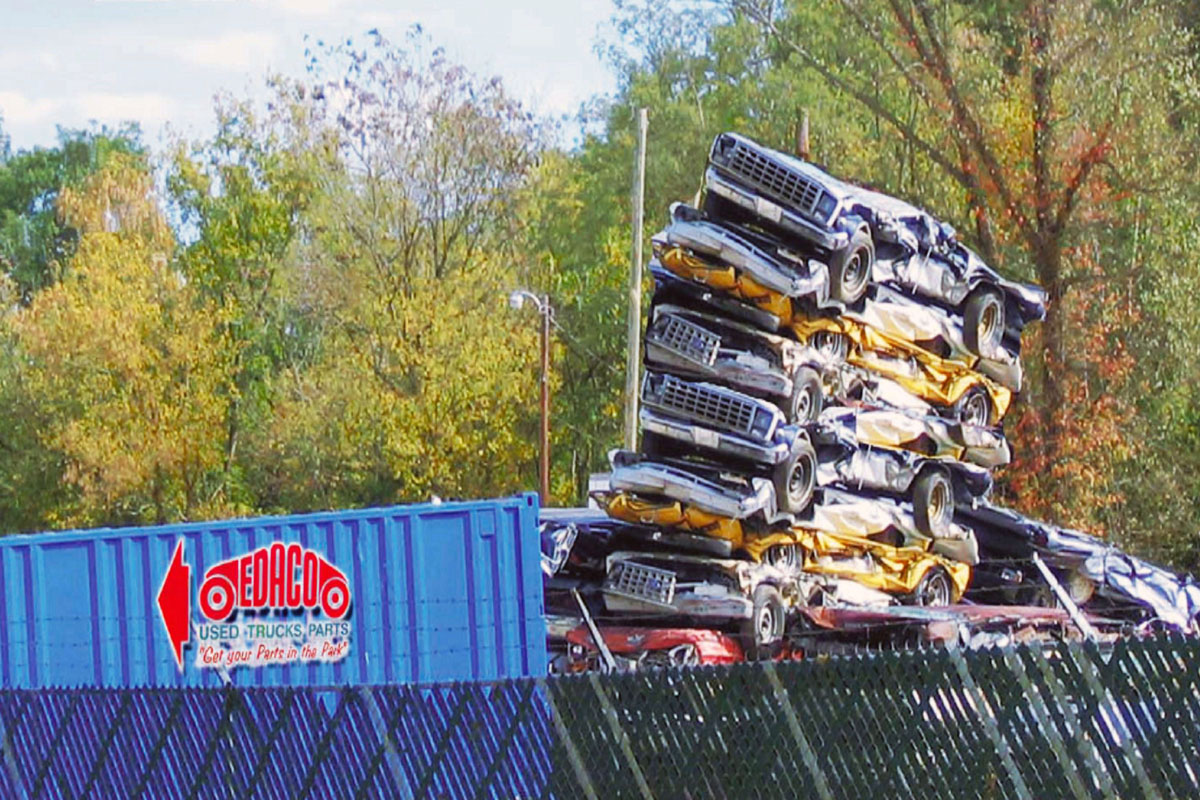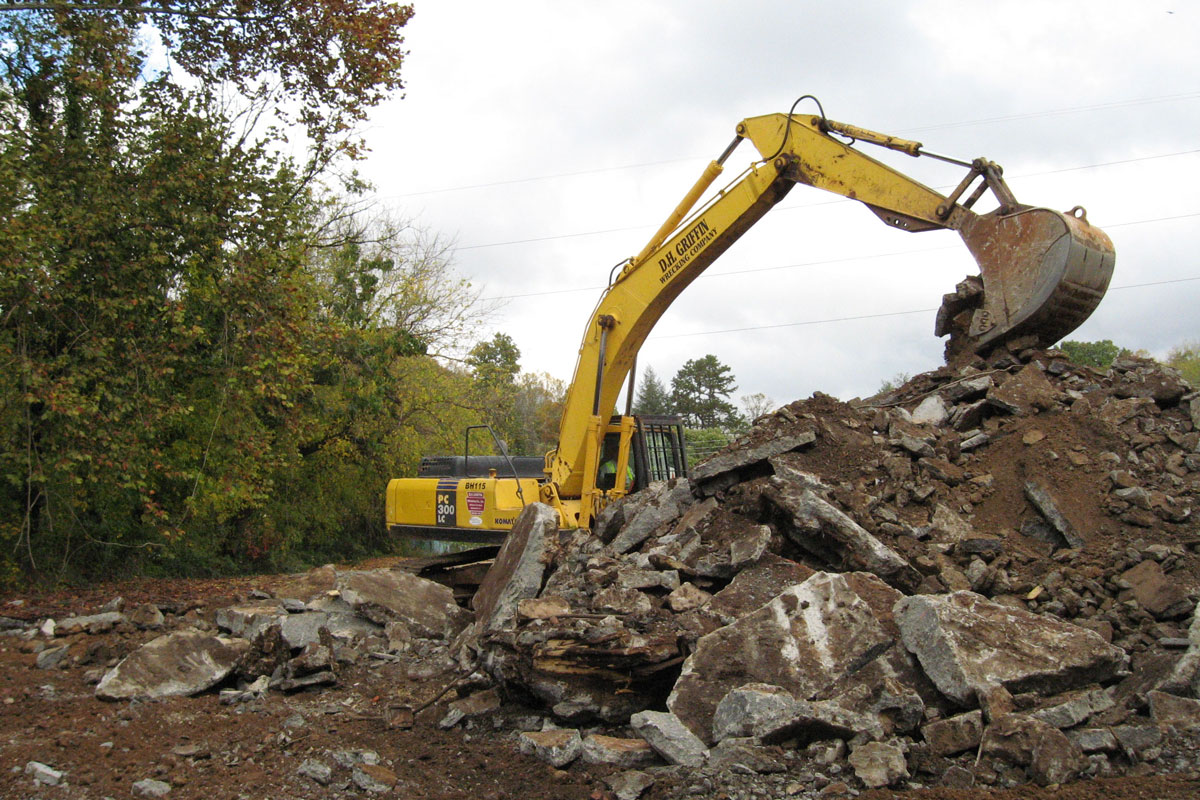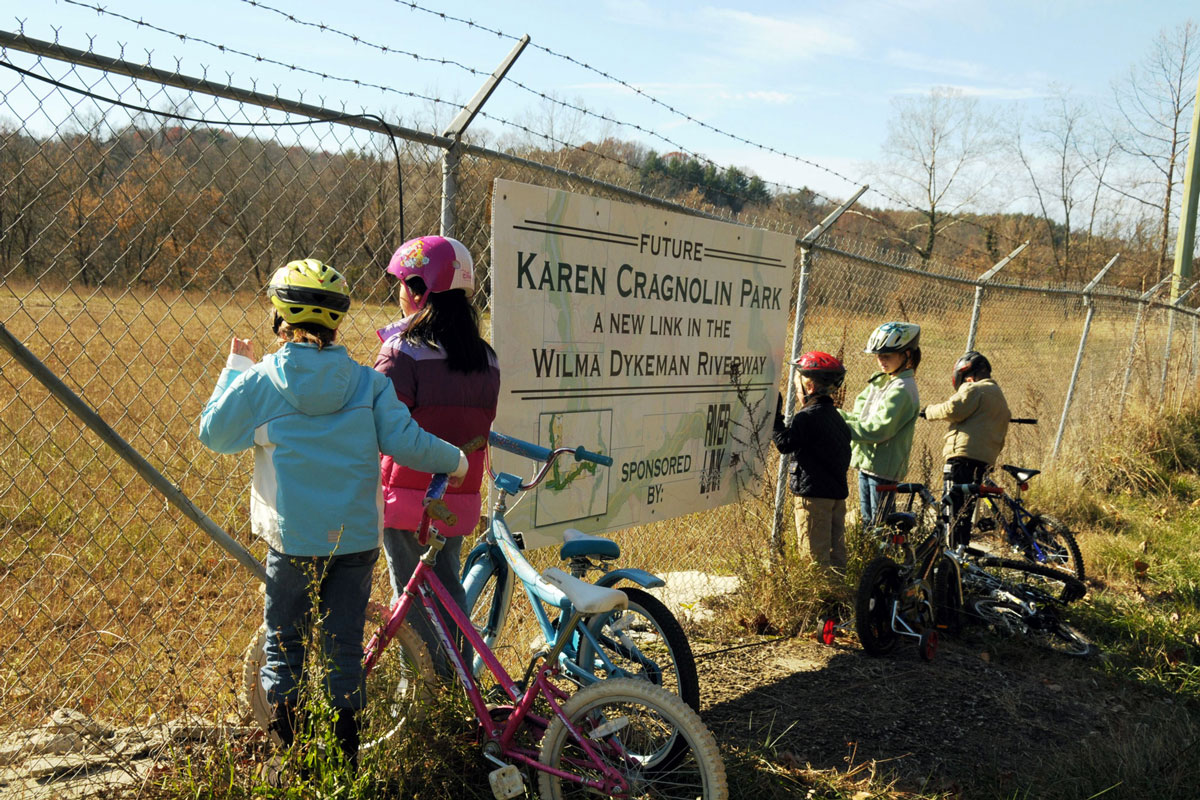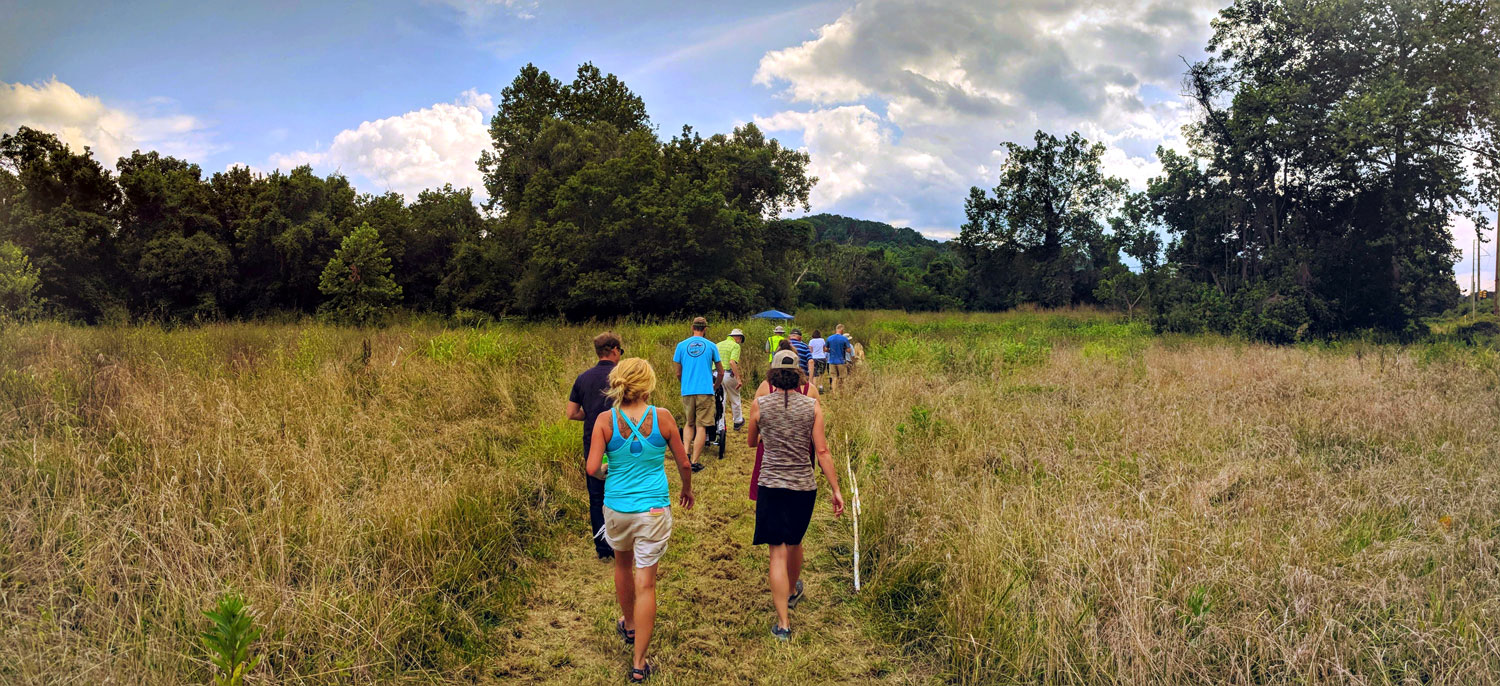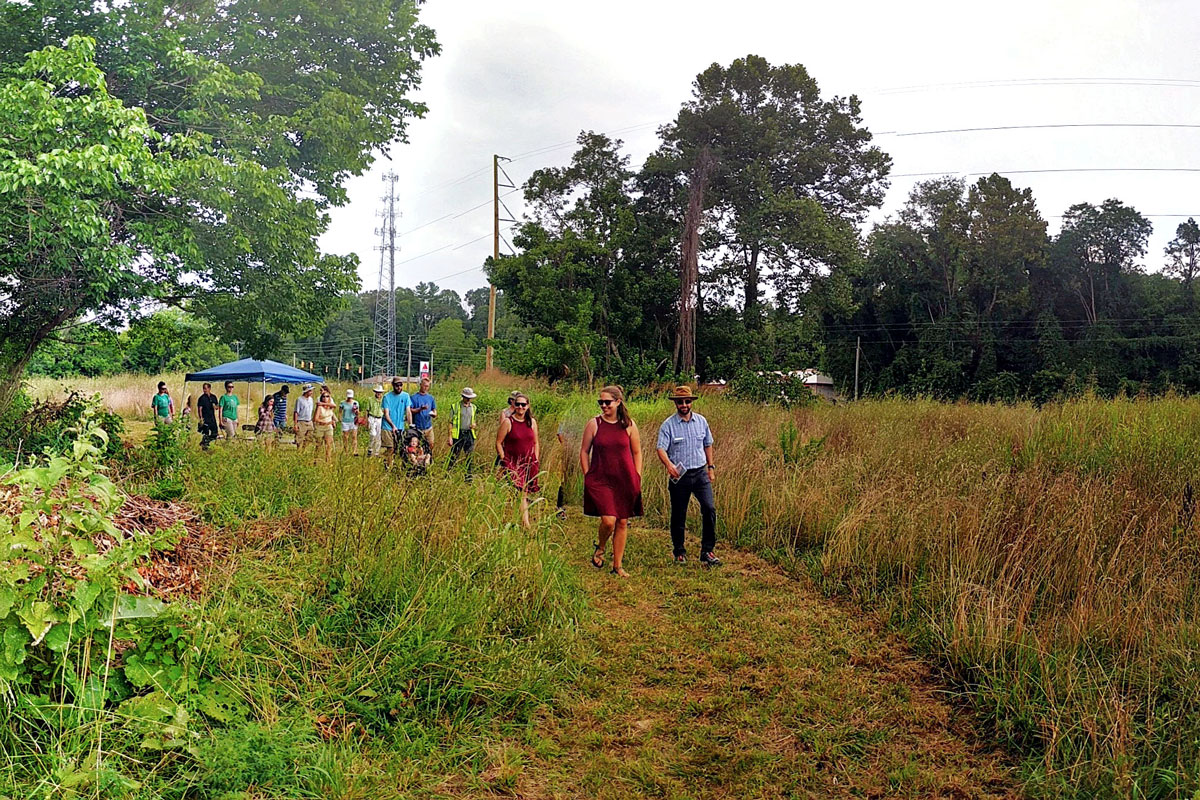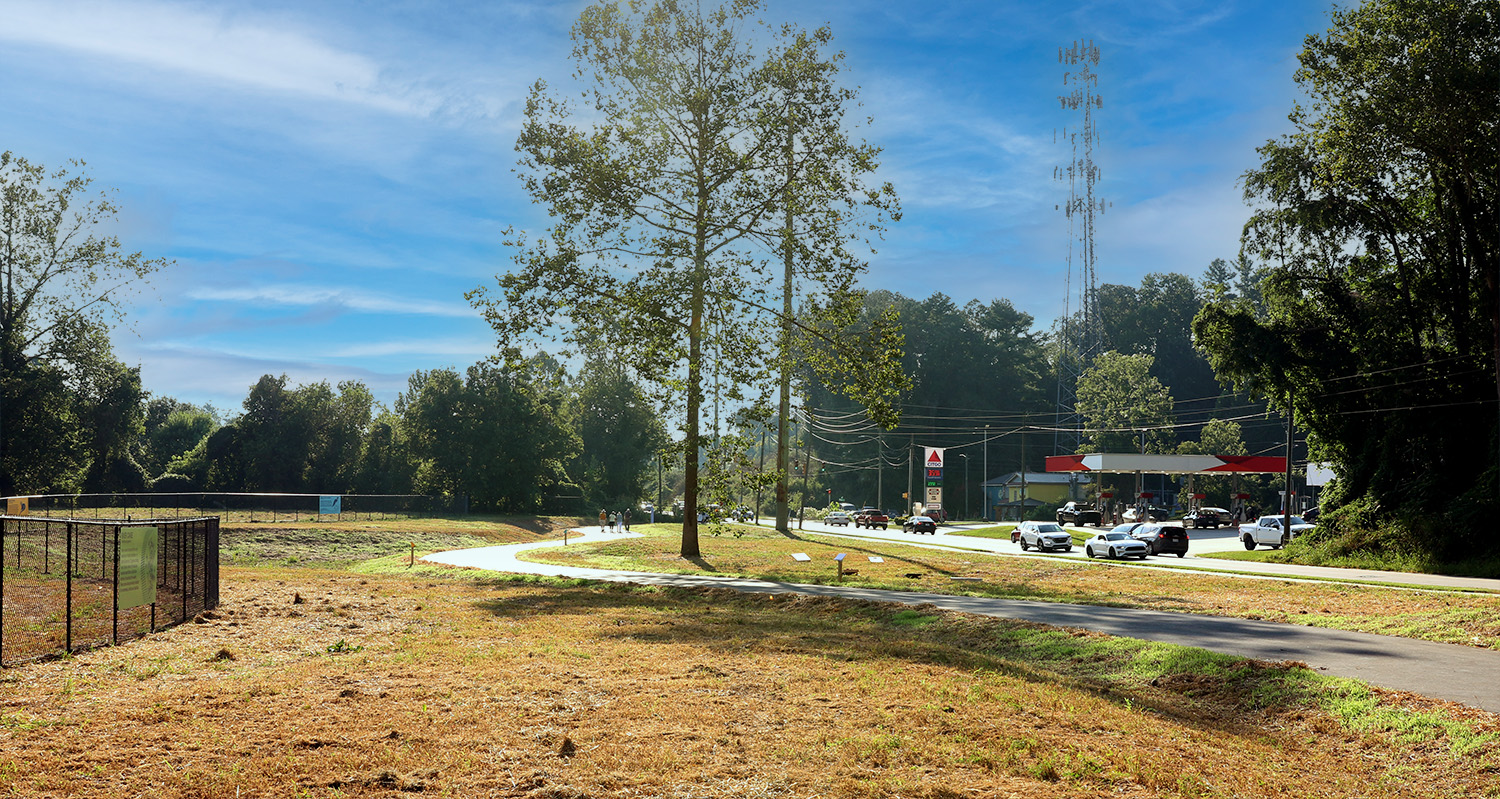
Greenway Phase Now Complete
Named in honor of RiverLink’s founder, this parcel in the heart of the French Broad River Park corridor has gone through an impressive transformation from former junkyard to a reclaimed, climate resilient, public space and greenway.
History & Background
Asheville has come a long way from the days of turning its back to the river – paving her riparian buffer, releasing refuse into her muddy waters, and disregarding her ecological, recreational and tourism benefits. Too thick to drink and too thin to plow – that’s how author and historian Wilma Dykeman described the river in its worst days.
Today, Asheville’s urban riparian corridor reflects a river in transition, with parks, greenways, art studios and breweries emerging between dredging facilities, warehouses and concrete and plastics factories. As a newly-revitalized cultural and recreation corridor, the French Broad River has become a place people want to spend time due to its environmental and economical vitality – a transformation RiverLink has spent more than thirty years promoting.
A missing link in this ribbon of parks, river access sites, greenways and concessions has been Karen Cragnolin Park. Purchased as a long-standing auto-crushing junkyard in 2006, RiverLink has invested more than a decade removing concrete, healing the polluted soil, managing invasive plants, and planning a new park–one that showcases its context in mother nature and cultural history, tells its story of remediation, and honors RiverLink’s founder, Karen Cragnolin. As a community leader and visionary, Karen deserves enormous credit for having the vision and leading the path forward to transform Asheville’s riverfront, restoring an entire district as something to be enjoyed by all – residents and visitors alike.
Karen Cragnolin Park
The Master Plan for Karen Cragnolin Park, developed by renowned landscape architecture firm Nelson Byrd Woltz, is the product of an involved discovery process, examining site hydrology, conditions in the riparian zone, soil conditions, early human uses, recent industrial uses, and more. Developing the plan for this five-acre park employed a community engagement process which included field days at the beginning and near the end of the design process, with presentations of findings, take-home materials, and online surveys of stakeholders to incorporate feedback along the way.
The result is a masterful design which will be executed in a phased approach. The first phase, described in detail below, was recently completed and includes functional stormwater amenities, a paved path connecting to the adjacent parks and educational signage throughout. Additional future phase features being explored include a pavilion, river access and an educational platform all dependent on funding and partnership.
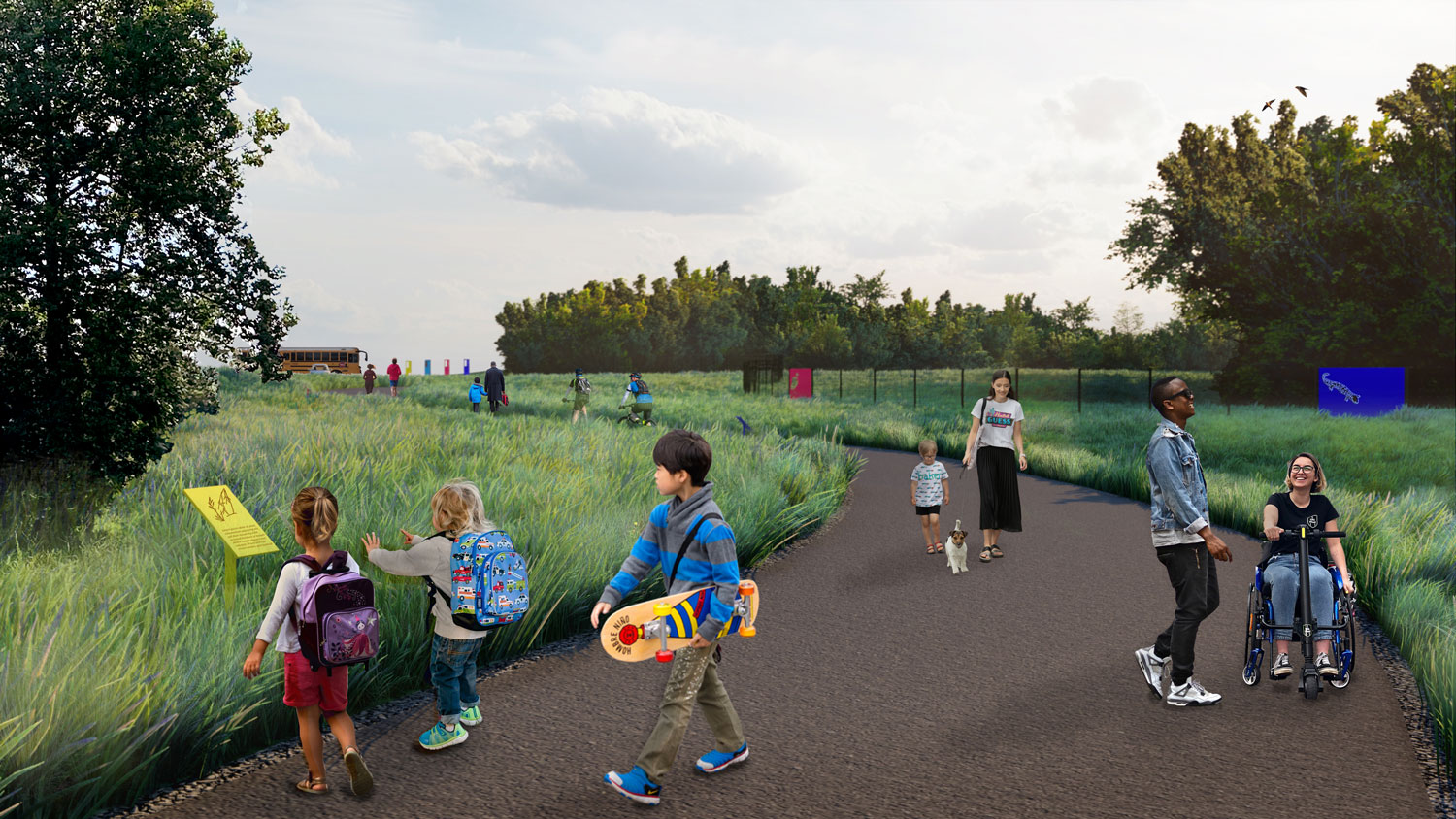
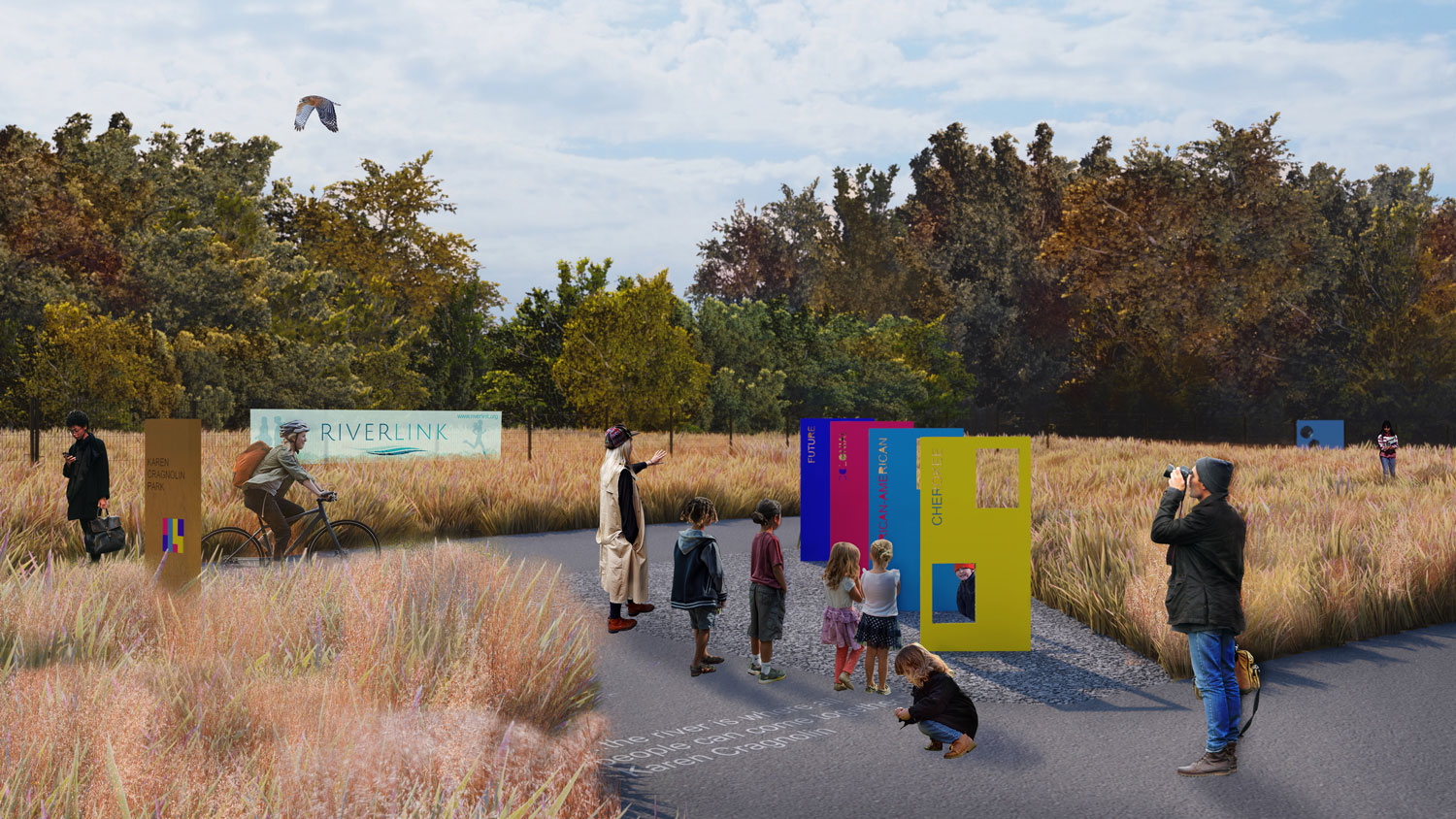
The Greenway Phase
RiverLink is leading the work to transform this five-acre former industrial site on the banks of the French Broad in honor of our visionary founder, Karen Cragnolin. Phase 1 of the project was implemented in 2023 to return the floodplain to its pre-development function of capturing and storing excess water, ensuring that the new infrastructure withstands heavy rain and flood events. Earthen mounds support and amplify pollinator plantings while facilitating drainage of floodwater back to the river.
Much of the Phase One costs included the significant grading that continues the site’s transformation from its industrial past. Site plans were designed to return the floodplain to its pre-development function of capturing and storing excess water. Sensitive earth-moving operations respected the river while ensuring that the new infrastructure withstands heavy rain and flood events. Earthen mounds support and amplify pollinator plantings while facilitating drainage of floodwater back to the river via wetlands and rain gardens created with plants adapted to wet environments.
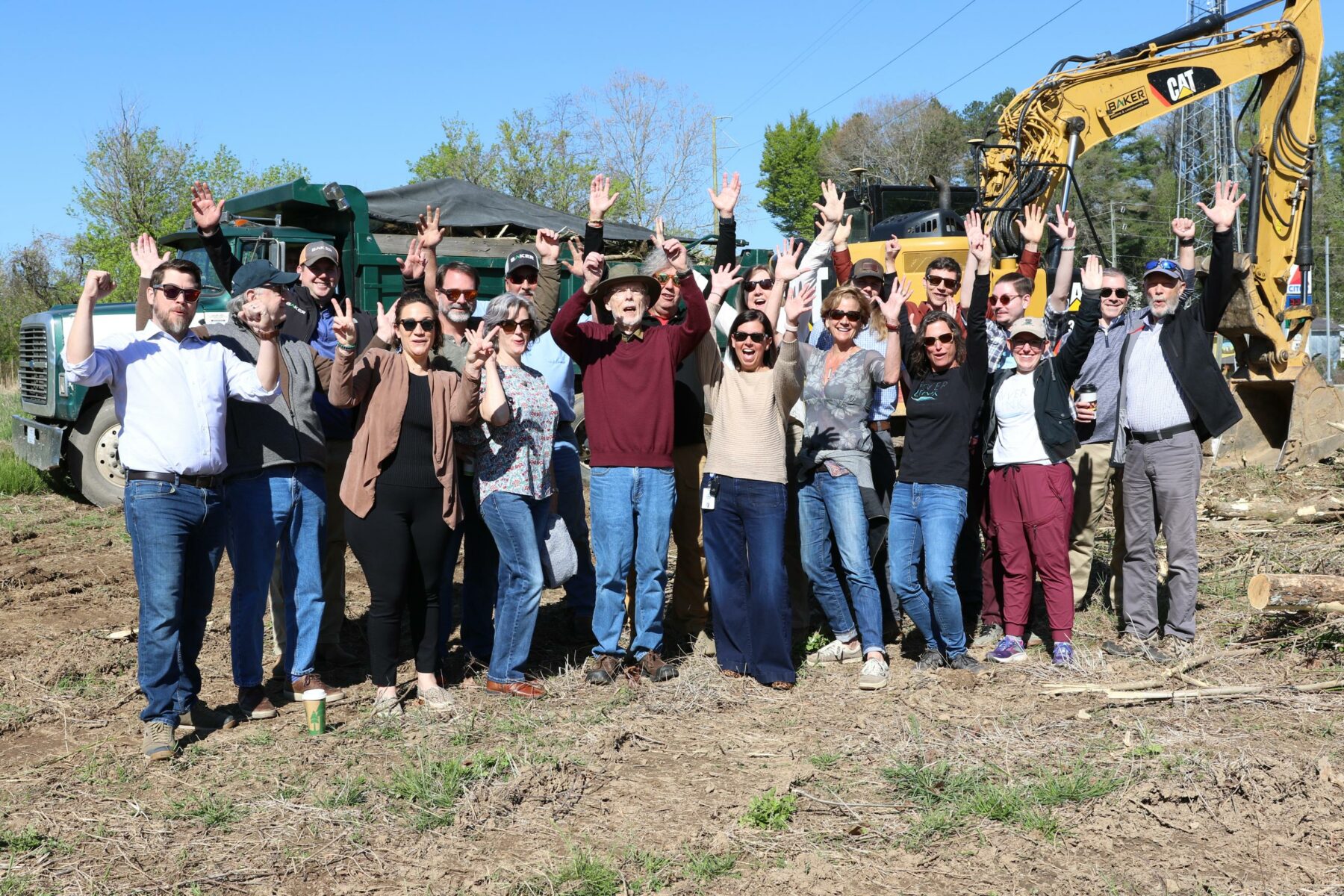
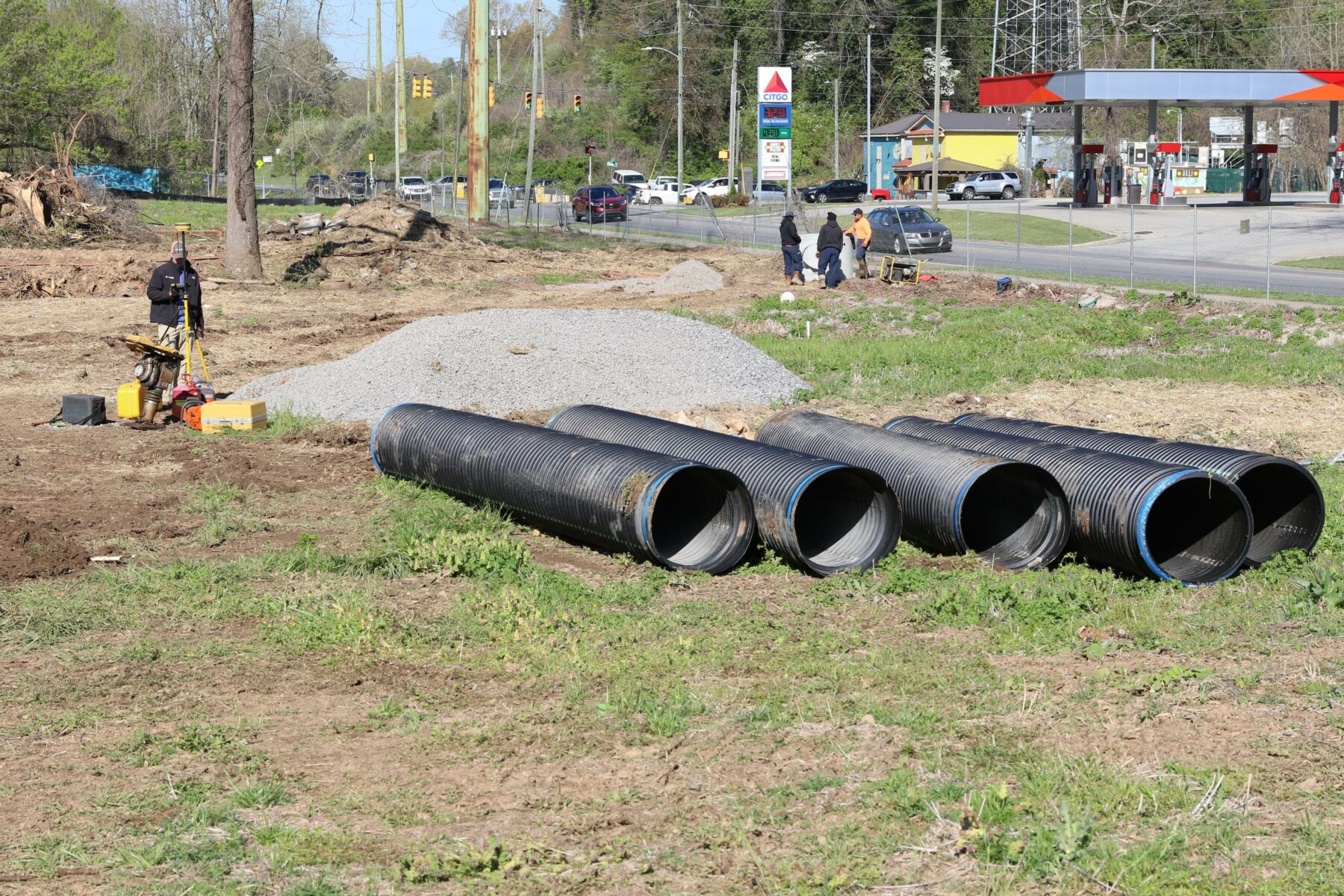
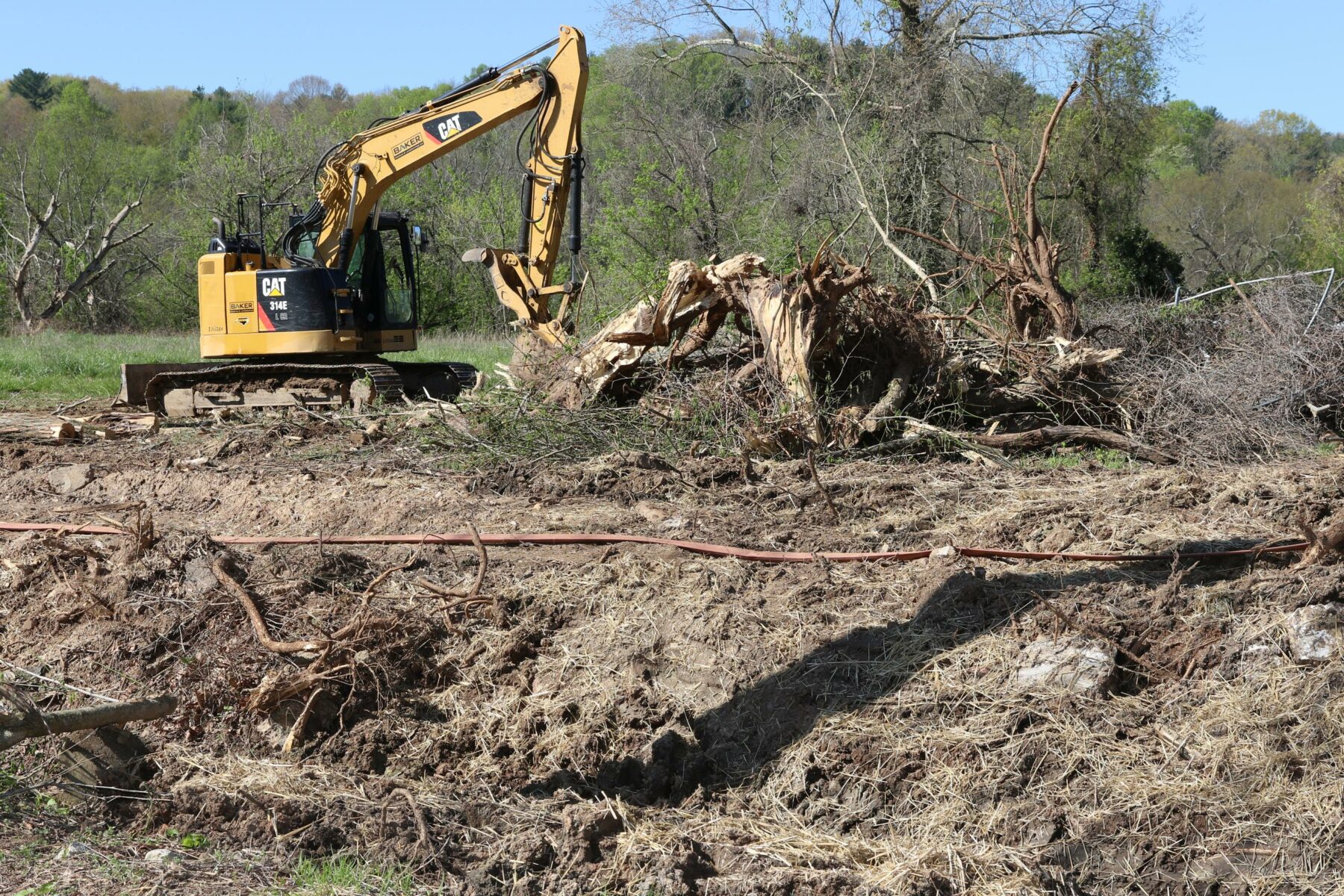
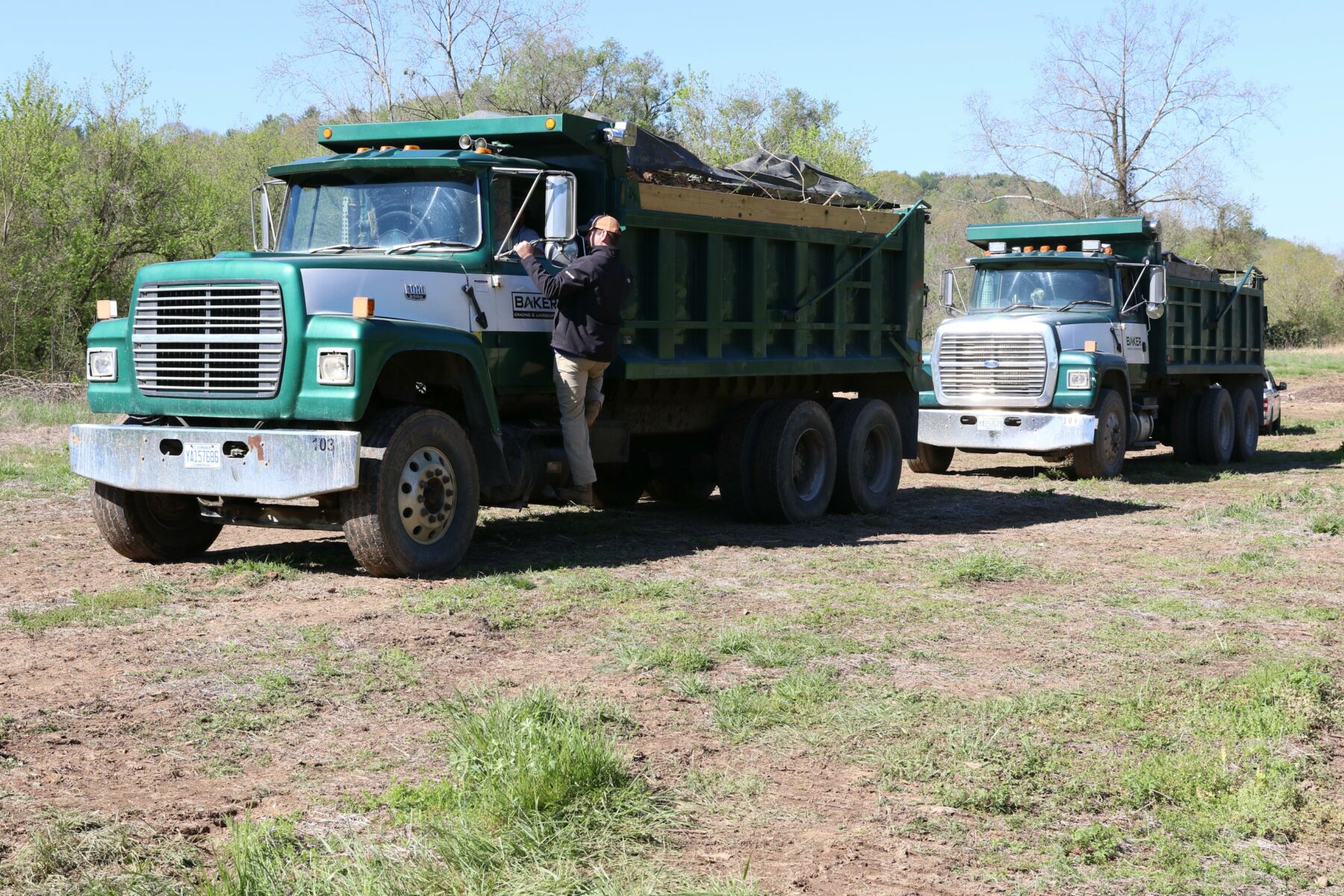

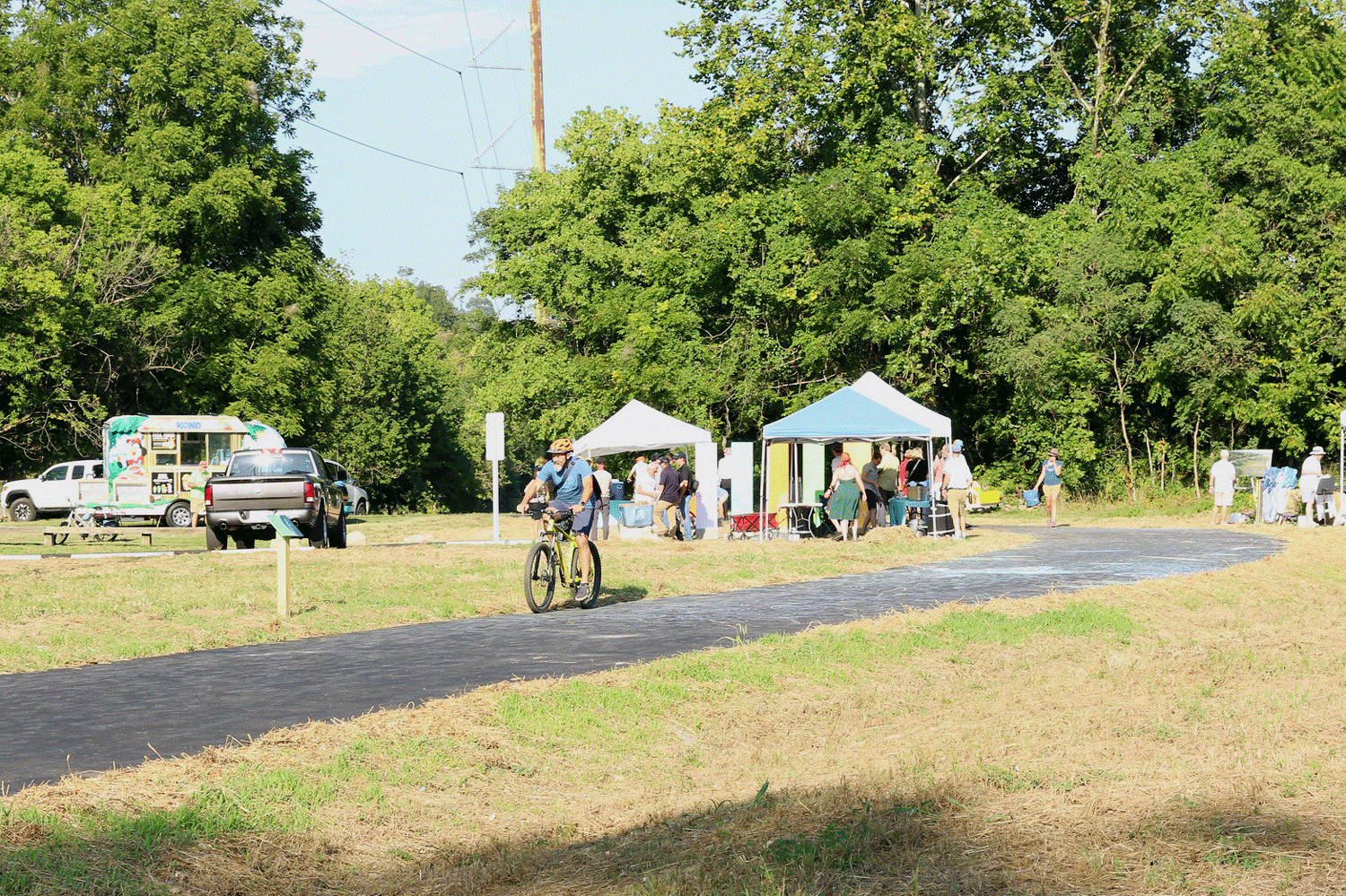
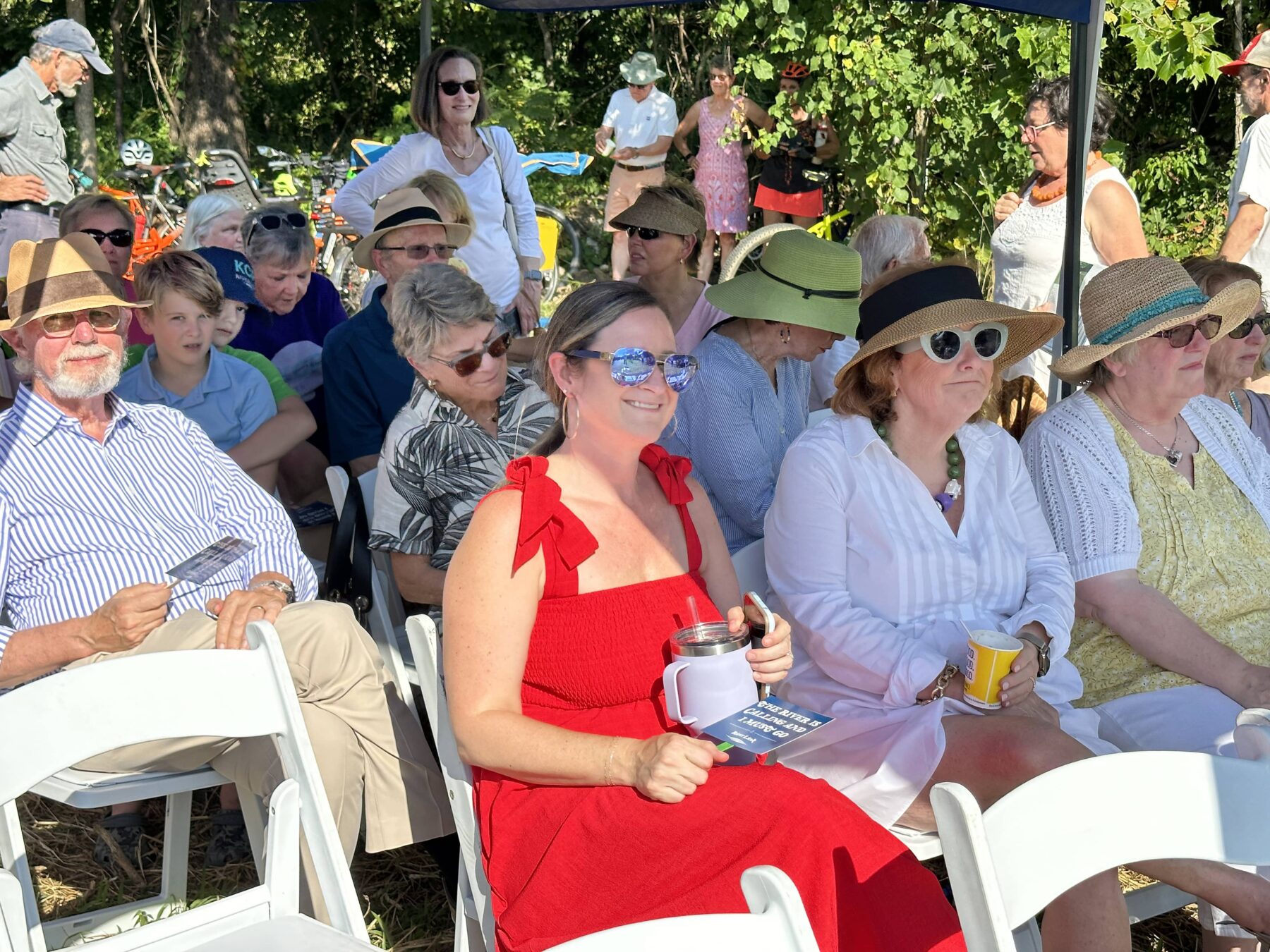
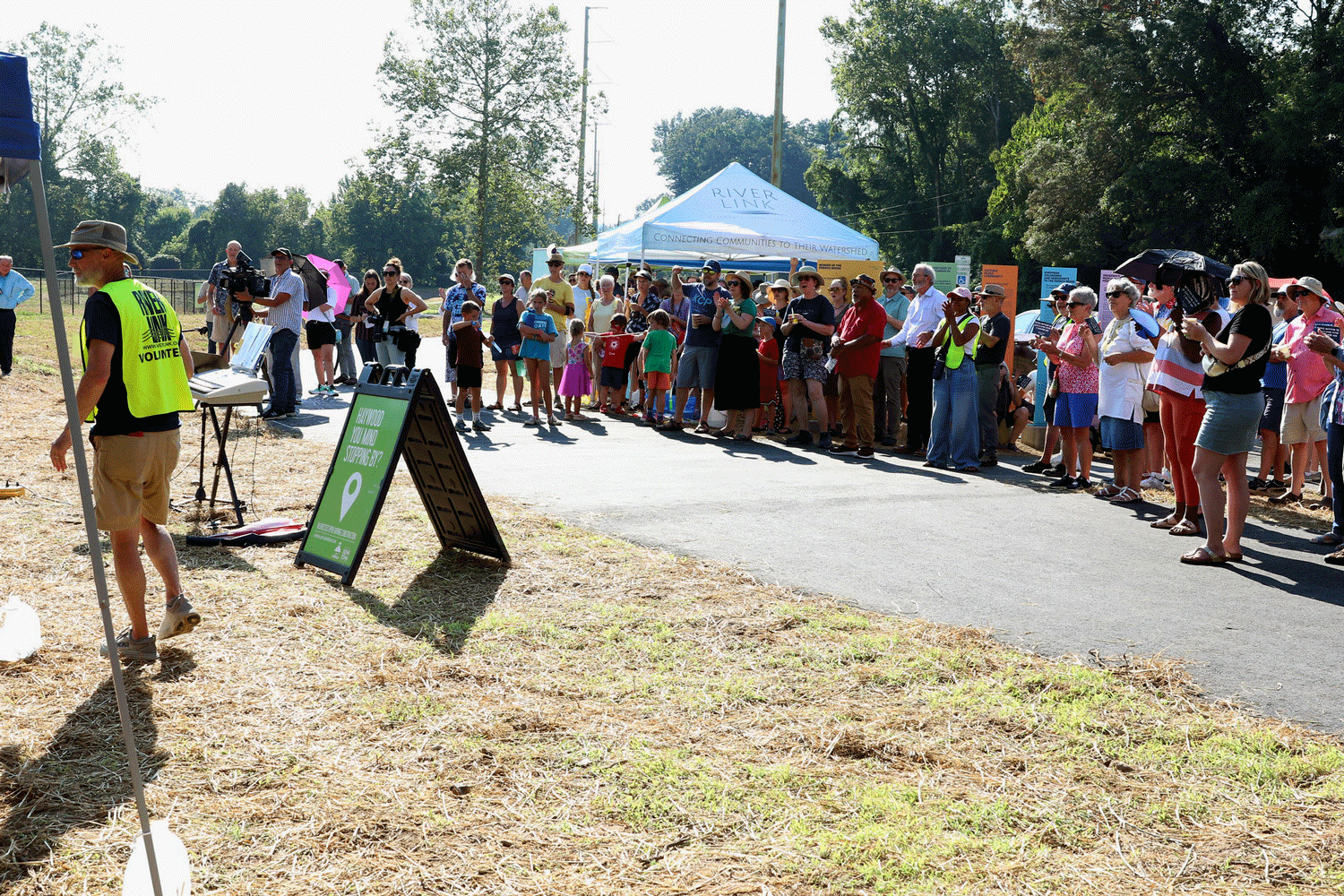
This project represents a key opportunity to sustain threatened pollinators, as much of the municipal parkland contiguous to the future Karen Cragnolin Park is mowed fescue, largely devoid of pollinator habitat. Karen Cragnolin Park has been designed with native prairie grasses and forbs chosen for their ability to support pollinating insects, store and filter flood water, and continue phytoremediation. The master plan also provides almost half an acre of flowering plants, providing much-needed habitat for butterflies, hummingbirds, bees. These pollinator gardens, situated among unmowed, native meadows, provide an opportunity for visitors to learn about native grassland ecology, and observe the diversity of life it supports, while continuing the remediation of soils from the site’s past industrial use.
This project highlights the multitude of ways RiverLink’s work centers climate resilience and environmental justice. Removing impermeable surfaces like concrete and recreating wetlands and rain gardens reduces the urban heat island effect and allows more stormwater to be absorbed by the land, thus helping us cope with the impacts of stronger storms releasing more precipitation. Bioremediating abandoned industrial sites improves the health of impacted land and nearby communities by reducing toxin exposures. Extending greenways promotes carbon emission free travel, thus reducing the quantity of climate disrupting greenhouse gasses that enter the atmosphere. Establishing pollinator gardens and replanting native plants creates sanctuaries that help these vital species rebuild their populations and gain resilience to the threats to their survival.
In addition to the grading and plantings, this phase included the installation of attractive and durable signage to educate visitors about the park’s cultural history, ecological prominence, and transformational story. These signs tell the stories of Cherokee presence and use of the river corridor, post-colonial development, the significance of the historic local Black community, the damage delivered by decades of industry, and the transformation by RiverLink and partners, highlighting the leadership of key women including Wilma Dykeman, Jean Webb and RiverLink founder Karen Cragnolin, who helped ignite the restoration.
A visually-appealing fence was constructed in a contour aligned with the greenway path, precluding access to the undeveloped portions of the park where soil remediation and permitting is not complete, and where management is not yet occurring. This fencing will be in place until the remaining portions of the park have completed environmental review and permitting, allowing development of the rest of the park in subsequent phases.
The Greenway Phase was completed the summer of 2023 with a ribbon cutting and community-wide celebration. Tremendous gratitude to all who made this possible.
